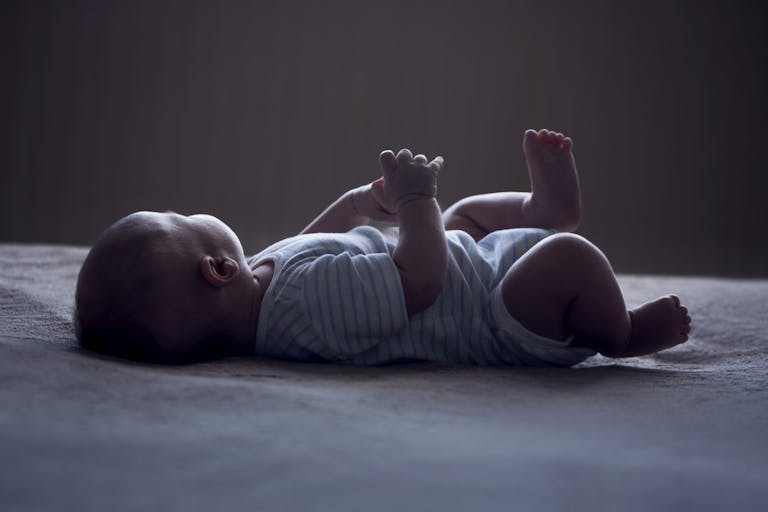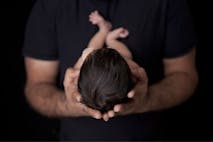
Surrogacy's dehumanizing effects can't be undone by laws regulating it
Angeline Tan
·
NPR promotes abortion as necessary for women to be efficient workers
A recent article published by NPR purported to explain how vitally important abortion is — to both a woman’s financial future and the overall economy. NPR claimed that without abortion, women would suffer in impoverished misery, and the economy would also tank.
Abortion as economic success
In 2022, the Supreme Court overturned Roe v. Wade in its Dobbs v. Jackson Women’s Health Organization decision. NPR recounted a conversation that took place shortly before the Dobbs decision in testimony before a Senate committee. In it, legalized abortion was framed as an economic need.
“I believe that eliminating the right of women to make decisions about when and whether to have children would have very damaging effects on the economy and would set women back decades,” Treasury Secretary Janet Yellen said at the time. Then, when the framing of abortion as an economic necessity was described as harsh, she responded, “This is not harsh. This is the truth.”
According to NPR, Yellen further claimed that with legal abortion, there are more women in the workforce, more women able to obtain an education, and more earnings potential overall.
Yellen, as well as economist Caitlin Myers, also credit Roe as a driving force behind more women entering the workforce. “That is one of the biggest economic stories of the 20th century,” Myers said.
This is not a new argument; pro-abortion groups have long claimed that pro-life laws are bad for the economy. However, the foremost issue that these supposed studies actually find is not that pro-life laws are bad for the economy, but that pregnancy discrimination still exists, and that large numbers of women experience it.
Pregnant women are not incapable of working the second their child is conceived, and their jobs do not magically disappear the moment they become pregnant. No, pregnant women are fired simply because they are pregnant, and abortion gives women a choice that, for many, is no choice at all: kill their preborn baby or lose their job and, therefore, their ability to continue supporting their other children. If the issue is actually one of keeping women in the workplace, then what should be addressed is the core issue of pregnancy discrimination. But it’s much easier to toss a few hundred dollars at a woman and pressure her into an abortion than it is to effect widespread, systemic change in the American workforce. And as long as abortion is legal, employers will have no reason to embrace pregnant and parenting women with more family-friendly workplace policies.
Furthermore, the economic argument is an ethical falsehood. Even if abortion is good for the economy, that doesn’t mean it should remain legal. This is, quite literally, the same argument slavers used before the Civil War in an effort to keep slavery legal. They argued that ending legalized slavery would destroy the American economy, so human beings should continue to be dehumanized and stripped of their basic rights. Even if taking a human life does make businesses more money, that doesn’t make it acceptable.
The Turnaway Study… again
NPR cited the oft-debunked Turnaway Study as “evidence” of how abortion improves women’s economic outcomes. “[W]omen who were denied abortions were more likely to live in poverty, less likely to work full time, more likely to receive public assistance (though not enough to offset their lost income) and less likely to have additional children later in life,” NPR reported. “In contrast, many women in the study who did have abortions went on to have children later, when their financial circumstances had improved.”
The Turnaway Study is a prime example of junk science engineered by biased researchers looking to verify their own foregone conclusions.
READ: ‘I just want my baby back’: Reddit poster shares traumatic abortion pill experience
The 877 women who participated in the study had been denied an abortion and were hand-picked by 30 abortion facilities across the country and were then given phone interviews every six months over five years. A full quarter of the women “turned away” from an abortion ended up having an abortion in another state, or experienced a miscarriage. Only 17% of the women who initially participated remained in the study by its final year. It’s therefore impossible to truly determine how having an abortion or being denied an abortion affected the women who participated — especially because women who had negative abortion experiences were the least likely to continue participating. This means the small percentage of women who did continue participating were more likely to report on abortion positively.
After the study concluded, the results were trumpeted far and wide as being “proof” that 95% of women do not regret having an abortion. Yet what wasn’t reported was that, among the women who did not have an abortion, there were some interesting results: Six months after giving birth, just one in eight women (12.5%) said they still wished they had been able to have an abortion. After five years, only one in 25 (4%) wished they still would have had the abortion. Most of the women who were “turned away” from an abortion said they were happy with their baby. The study results could, therefore, just as easily been focused on the 96% of women who didn’t regret giving birth after being denied an abortion.
Women who carried their pregnancies to term also were found to have lower levels of anxiety, depression, and self-esteem, including just one week after being “turned away.” The average depression score of these women was lower than the women who had abortions.
As for the economic prospects of women who had abortions vs. women who didn’t? Further analysis disproves that notion as well. As Randall K. O’Bannon, Ph.D., NRL-ETF Director of Educational & Research, explained:
First, notice that, at least in regard to one important criteria, having the abortion did not tend to significantly improve the woman’s economic condition. Forty-five percent were on public assistance before the abortion, 44% after. Most still had income below the federal poverty level and just barely more than half had full time employment.
Second, the sudden increase seen in public assistance may have been due, theoretically, at least in some part, not so much to worsening economic conditions, but to women becoming eligible for new or additional assistance because of the birth of the child. Without more details from the official study, it is difficult to say. The fact that most women on welfare tend to move off it within two years is not mentioned (see NRL’s factsheet on the economic impact of abortion at www.nrlc.org/Factsheets/FS04_MissingPersons.pdf ).
Note as well that nearly half of these women had full time jobs after … birthing their babies; the slight difference between the aborters and non-aborters could have easily been due to some of those women choosing to stay home with the child. Again, without access to full data, we can’t know for sure.
The skewed study results confirm women’s fears of successfully providing for a child or succeeding in their careers while being mothers. But who benefits from the stoking of these fears? Are such concerns expressed out of concern for what’s best for women as abortion advocates claim, or used to ensure that the abortion industry keeps the money flowing in? After all, we’ve seen in pro-life states that abortion facilities will merely shut their doors and move to pro-abortion states, rather than stay put and help women carry children to term when facing unplanned pregnancies. Clearly, the concern is not for what’s best for women, but for what’s best for abortion businesses and the people who promote them.
Live Action News is pro-life news and commentary from a pro-life perspective.
Contact editor@liveaction.org for questions, corrections, or if you are seeking permission to reprint any Live Action News content.
Guest Articles: To submit a guest article to Live Action News, email editor@liveaction.org with an attached Word document of 800-1000 words. Please also attach any photos relevant to your submission if applicable. If your submission is accepted for publication, you will be notified within three weeks. Guest articles are not compensated (see our Open License Agreement). Thank you for your interest in Live Action News!

Angeline Tan
·
Issues
Angeline Tan
·
Analysis
Cassy Cooke
·
Politics
Cassy Cooke
·
Analysis
Cassy Cooke
·
Analysis
Nancy Flanders
·
International
Cassy Cooke
·
International
Cassy Cooke
·
Analysis
Cassy Cooke
·
Politics
Cassy Cooke
·
Analysis
Cassy Cooke
·